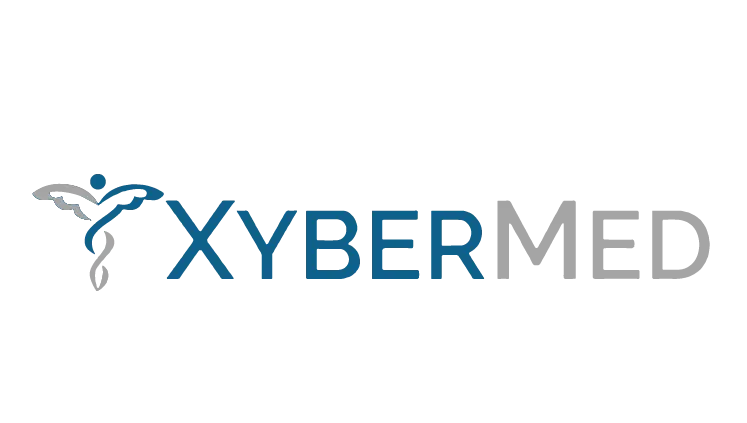Our Blog

Mastering Denial Management in Medical Billing
Denial management or rejection management in medical billing is the most important yet complex thing to handle. However, a survey shows that 90% of claim denials are preventable. Meaning that healthcare providers can get reimbursed and improve their revenue cycle by simply mastering rejection management. Before going in-depth about rejection management, there is a dire need to understand this concept in the first place. Insurance companies often deny the monetary claims of healthcare providers (in return for their services to patients). The strategies to prevent such denials and recover claims are known as rejection management.
Are you a medical practitioner facing trouble obtaining claims? This blog will cover all the crucial aspects to help you understand better and improve your denial managerial skills.
Key Components of Denial Management
Healthcare organizations need to focus on its key components for effective rejection management. By understanding this proactive framework, healthcare professionals can prevent future problems from the very beginning.
Here are the go-to key components of denial management.
Accurate Entry:
Denial management emphasizes the initial screenings of patients that are of an administrative nature. Most claim rejection occurs due to inaccurate patient entries like name, age, disease diagnosis, and provided treatment.
Identifying Root Cause:
Healthcare providers persistently worry about claim rejection, while rejection management helps them understand “why?”
Denial management helps evaluate the root cause and rectify it accordingly.
Appeal Process:
Once the root cause is identified, the following component of rejection management involves the appeal process. Healthcare providers learn about a streamlined protocol to file appeals based on specific guidelines and regulatory measures.
Education and Training:
Denial management is an ongoing journey involving billing staff training and education. Keeping up with the latest regulations of payer policies is of utmost importance, and therefore, rejection management involves regular employee training to reduce mistakes. The more regulatory compliance, the fewer risks.
Follow Up
rejection management doesn’t conclude even if the problem is resolved. It utilizes data analytics to monitor trends for improving revenue cycle and streamlining future operations.
Risks Involved in Ineffective Denial Management
A survey shows that healthcare organizations face 15% claim denials, which results in huge revenue loss. This indicates the risks associated with poor denial management that can lead healthcare professionals to face severe consequences. An organization can face the following risks due to ineffective denial management.
Revenue Loss:
Nearly $262 billion in healthcare claims are denied, reflecting the biggest risk of improper denial management.
Healthcare Accurate Entry:
Denial management emphasizes the initial screenings of administrative patients. Most claim denial occurs due to inaccurate patient entries like name, age, disease diagnosis, and provided treatment.
Identifying Root Cause:
Healthcare providers persistently worry about claim rejection, while rejection management helps them understand “why?”
rejection management helps evaluate the root cause and rectify it accordingly.
Appeal Process:
Once the root cause is identified, the following component of denial management involves the appeal process. Healthcare
providers learn about a streamlined protocol to file appeals based on specific guidelines and regulatory measures.
Education and Training:
Denial management is an ongoing journey involving billing staff training and education. Keeping up with the latest regulations of payer policies are of utmost importance. Therefore, rejection management involves regular employee training to reduce mistakes.
The more regulatory compliance, the fewer risks.
Follow Up
Denial management doesn’t conclude even if the problem is resolved. It utilizes data analytics to monitor trends for improving revenue cycle and streamlining future operations.
Risks Involved in Ineffective Denial Management
A survey shows that healthcare organizations face 15% claim denials, a huge revenue loss. This indicates the risks associated with poor rejection management that can lead healthcare professionals to face severe consequences. An organization can face the following risks due to ineffective rejection management.
Revenue Loss:
Nearly $262 billion in healthcare claims are denied, reflecting the biggest risk of improper denial management.
Healthcare Improper Coding:
In revenue cycle management (RCM), diseases are translated into codes when claiming. Therefore, it is imperative to label correct codes to avoid inconvenience. However, most claim denials happen due to improper coding.
Prior Authorization:
Some treatments insurance companies are previously authorized to cover. While often, the healthcare organizations do not pay attention, which leads to claim denials.
Improvement in Denial Management
Considering rejection management's utmost importance and complexity, here are the best methods to improve it. Generally, there are many hacks, but we’ve incorporated the most trending and handy strategies below.
Regular Audit and Data Analytics:
Data analytics and regular audits can prevent claim denials to a major extent. It helps in monitoring and identifying root cause immediately.
Staff Training:
Denial management involves harmonizing billing staff to reduce the chances of mistakes. By adequately teaching methods and do training programs for employees, the risk of claim denial can be reduced to a substantial extent.
Incorporate AI Automation:
AI (Artificial Intelligence) is a game changer in rejection management and can provide enhanced data accuracy. Similarly, it can monitor patterns and identify root causes faster and more accurately. Incorporating AI technology will help healthcare providers rework their claims efficiently.
Conclusion
Denial management in healthcare is crucial, as the entire operation relies on it. From patient entry to claim processing, effective rejection management is essential for providers. Despite its importance, 31% of healthcare workers still monitor their operations manually, often leading to increased claim denials. This highlights the need for healthcare professionals to master rejection management by adopting proactive strategies and leveraging industry advancements like AI automation. Organizations like XyberMed can be instrumental here, offering comprehensive, automated denial management services to streamline operations, reduce errors, and stabilize financial outcomes, helping providers stay on top of industry trends and maintain their financial goals.

Outsource medical billing service to XyberMed. Boost your practice with affordable, expert billing! Get started today and see the results.
Address:
755 Waverly Ave, Suite 100A Holtsville, NY 11742-1125 USA
